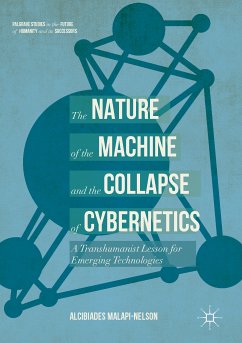The book starts with a historical and theoretical articulation of cybernetics in order to proceed with a philosophical explanation of its collapse-emphasizing the work of Alan Turing, Ross Ashby and John von Neumann. Subsequently, Malapi-Nelson unveils the common metaphysical signature shared between cybernetics and emergent technologies, identifying this signature as transhumanist in nature. Finally, avenues of research that may allow these disruptive technologies to circumvent the cybernetic fate are indicated. It is proposed that emerging technologies ultimately entail an affirmation of humanity.
Dieser Download kann aus rechtlichen Gründen nur mit Rechnungsadresse in A, B, BG, CY, CZ, D, DK, EW, E, FIN, F, GR, HR, H, IRL, I, LT, L, LR, M, NL, PL, P, R, S, SLO, SK ausgeliefert werden.
"Cybernetics, an approach for understanding control and communication in a very general way that applies to both machines and living systems, thrived as a movement for about a decade after WW II. ... This is a technical scholarly work with ample primary source citations ... . Recommended. Upper-division undergraduates through faculty and professionals." (D. Bantz, Choice, Vol. 56 (1), September, 2018)









